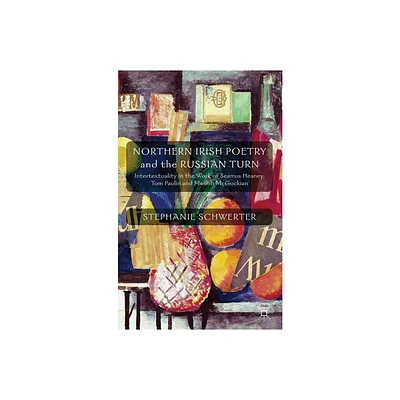Home
Poetics of the Local: Globalization, Place, and Contemporary Irish Poetry
Loading Inventory...
Barnes and Noble
Poetics of the Local: Globalization, Place, and Contemporary Irish Poetry
Current price: $99.00


Barnes and Noble
Poetics of the Local: Globalization, Place, and Contemporary Irish Poetry
Current price: $99.00
Loading Inventory...
Size: Hardcover
*Product Information may vary - to confirm product availability, pricing, and additional information please contact Barnes and Noble
Winner of the 2023 Robert Rhodes Prize for Books on Literature presented by the American Conference on Irish Studies
Poetics of the Local
considers contemporary Irish poetry in light of transnational forces of globalization and financialization, showing how these conditions have shaped poetic innovation in Ireland from the 1960s to the present. The book is organized around different sites caught in the growing pains of a rapidly globalizing Ireland—from the "ghost estates," or housing projects abandoned after the economic boom of the 1990s, to the urban "regeneration" of Belfast after the Troubles, to the transformation of Dublin into a hub for creative economy programs like the UNESCO City of Literature. In readings of works by Thomas Kinsella, Paula Meehan, Seamus Heaney, John Montague, Ciaran Carson, Leontia Flynn, Alan Gillis, Sinéad Morrissey, and Paul Muldoon, Shirley Lau Wong argues that the enduring centrality of place in Irish poetry should be seen not as a hangover of nostalgic nationalism but rather as an exploration of the material and emplaced effects of the seemingly faraway processes of global capitalism.
Poetics of the Local
considers contemporary Irish poetry in light of transnational forces of globalization and financialization, showing how these conditions have shaped poetic innovation in Ireland from the 1960s to the present. The book is organized around different sites caught in the growing pains of a rapidly globalizing Ireland—from the "ghost estates," or housing projects abandoned after the economic boom of the 1990s, to the urban "regeneration" of Belfast after the Troubles, to the transformation of Dublin into a hub for creative economy programs like the UNESCO City of Literature. In readings of works by Thomas Kinsella, Paula Meehan, Seamus Heaney, John Montague, Ciaran Carson, Leontia Flynn, Alan Gillis, Sinéad Morrissey, and Paul Muldoon, Shirley Lau Wong argues that the enduring centrality of place in Irish poetry should be seen not as a hangover of nostalgic nationalism but rather as an exploration of the material and emplaced effects of the seemingly faraway processes of global capitalism.

















